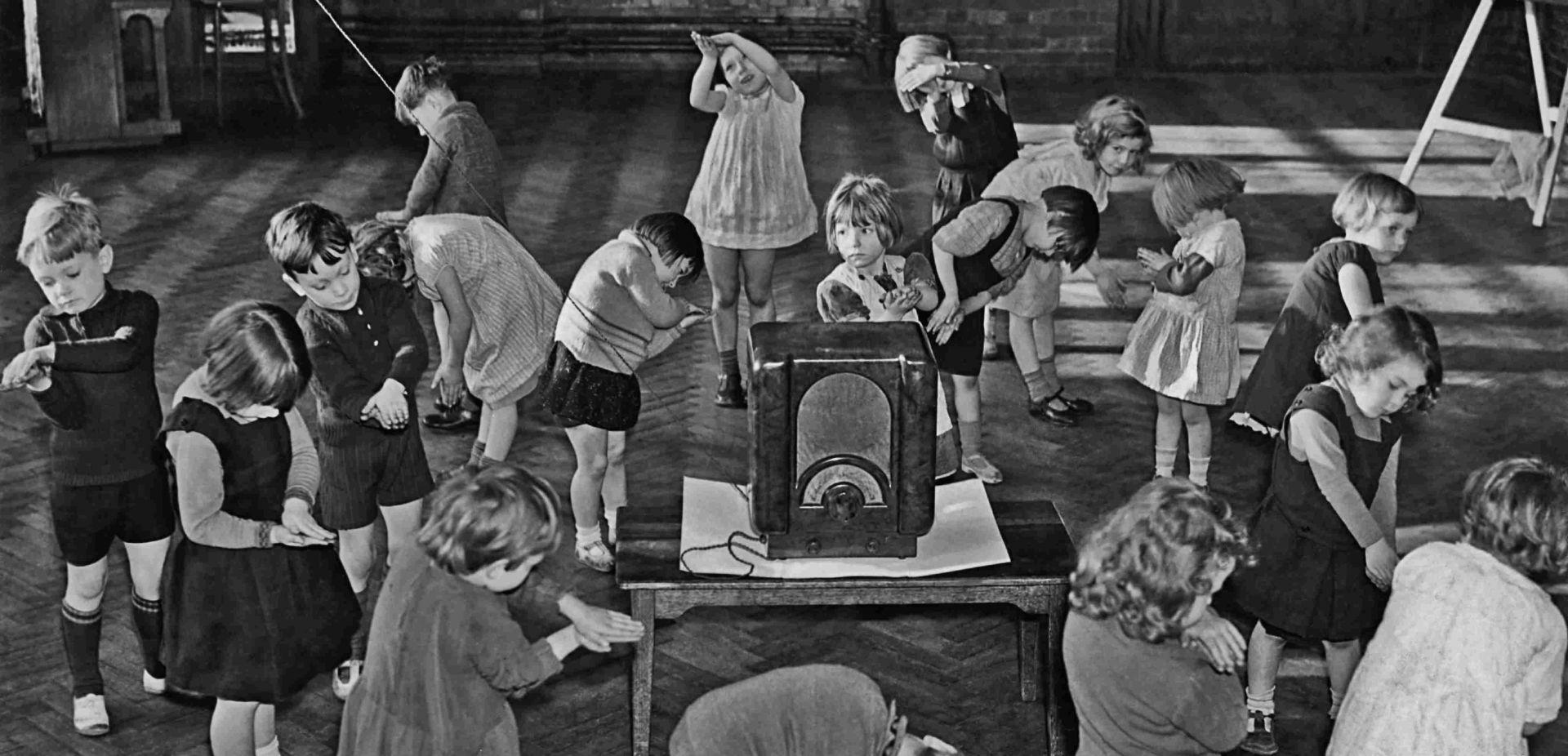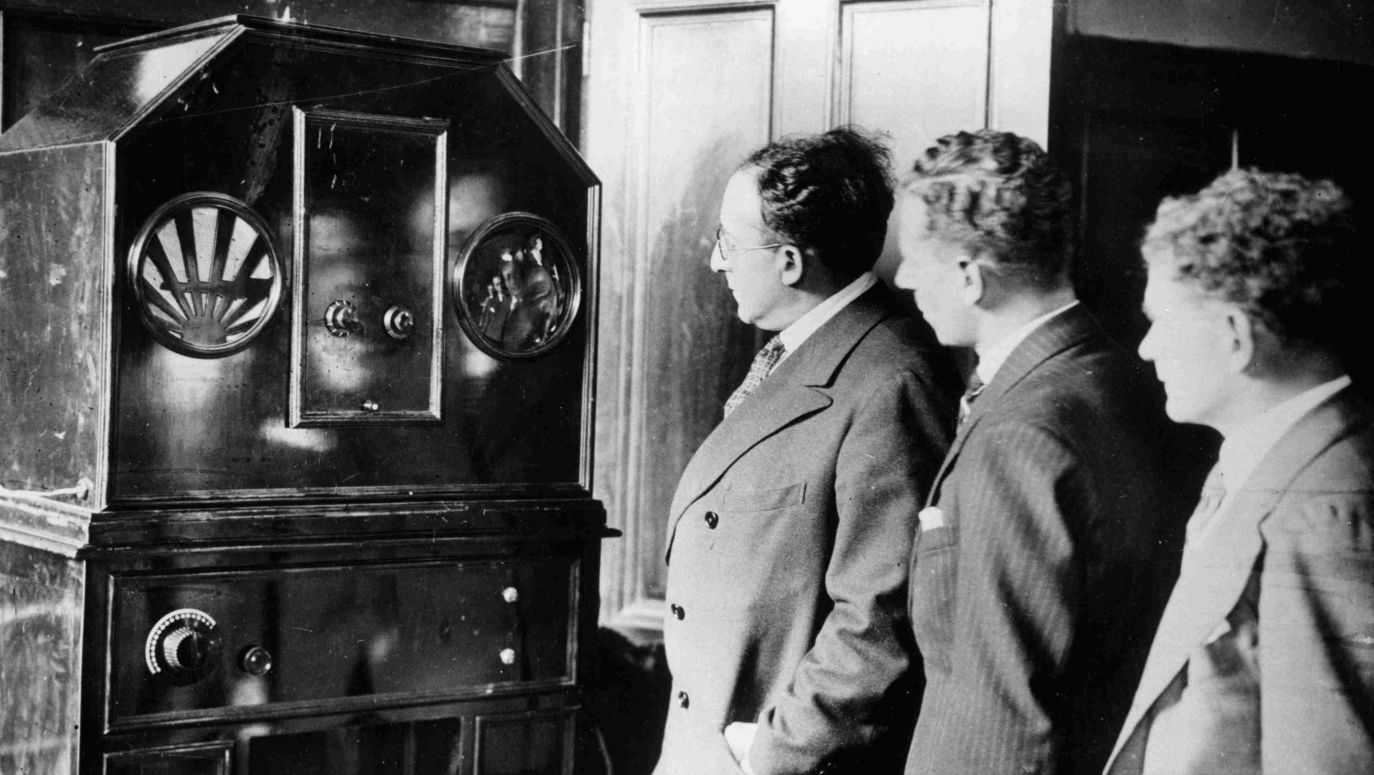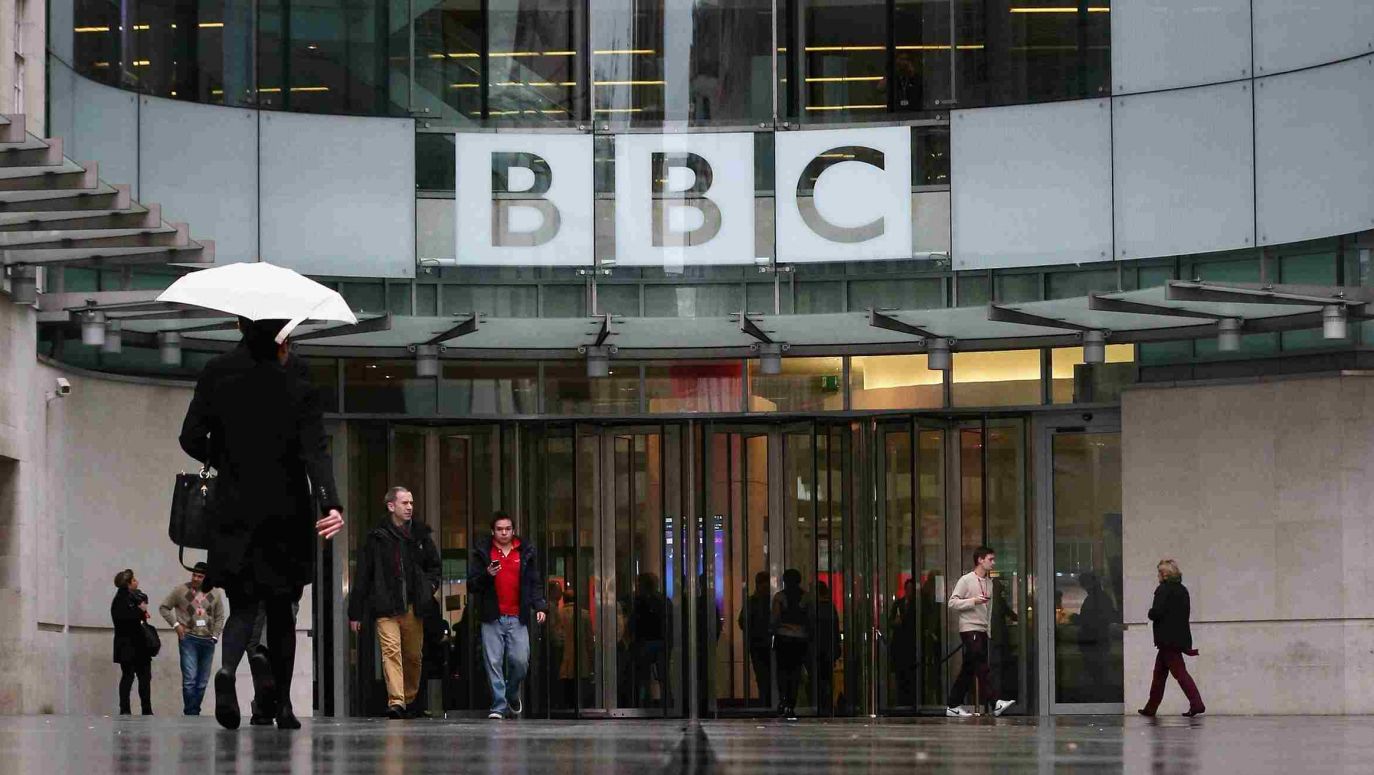BBC Centenary. Has political correctness replaced objectivism?
23.11.2022
As David Hendy, author of the anniversary book “The BBC: A People’s History” writes it, during WWII over 1000 sabotage actions on railways in Europe were carried out through the BBC. Not always and not everything worked perfectly, as planned, because, as one of his interlocutors remembers, “when a wrong tune was played, in Poland a wrong bridge would blow up”.

The English would rip off “Poland” patches from the clothes of the same people, who, until recently, they had bought a round of beers for.
see more
But there was a certain catch – by the way an utterly clear one. The organizers wanted the songs to be solely sung because in the era of Black Lives Matter movements their words were very much inappropriate. Calling Britain to rule – what a shame! Or to perceive it as a country of “hope and glory”, and, still worse to declare that “the British will never be slaves”?
Resistant to fake news
Even with that taken away the BBC fully supports BLM actions. The movement’s attempts on the British history and tradition were welcomed with recognition or even approval. On BBC News – the biggest Anglophone news portal – not a word was uttered to condemn the devastation of monuments to great Britons. They didn’t even defend Winston Churchill whose statue in front of the parliament was “embellished” with a note on the pedestal: “He was a racist”. BBC authors were acting as if, under the pressure of BLM they had run amok which forced them to negate the heritage of their own country.
But all this was yet to come. In 2015 nobody expected that things could take such a shocking turn even though already then it could be seen that in the BBC moderation and objectivity give way to political correctness. Moral change in a spirit of gender always deserved here a scrupulous acknowledgment and favor, migrants – a warm welcome, right-wing and conservative parties – condemnation and the label of “populist movements” whatever that should mean (until “populism” started being supplanted by the word “fascism” – which we can observe at present).
Why, then, did the use of BBC radio and television turn out to be important for most of the participants in the experiment? Because if we turn a blind eye to the whole envelope of correctness, focusing on the information layer, it turns out that the BBC is difficult to match in this field. The BBC informs reliably and does not provide unverified news. The Reality Check team checks, analyzes and develops them, providing the recipient with clear information put in a nutshell – whether it is about the procedure in elections, terrorist attacks, world hunger or fighting coronavirus.
Reliable verification makes the BBC immune to fake news. The time of the pandemic gave the authors of various nonsense information – such as that the vaccine can be used to remotely subordinate the vaccinated – a chance to show what one can do. But there was no such news on the BBC at all. This means that the BBC, despite correctness deviations, did not betray the basic goals for which it was established. At least in the field of information.
Inform, educate and entertain
This is the British Broadcasting Corporation: the oldest, largest and most renowned broadcasting corporation in the world. Premise: a source of reliable news, a model of objective, independent journalism, as well as impeccable English. It is designed to “inform, educate and entertain”, as its first boss John Reith put it to the point. He also added that “the BBC should not follow listeners, but go ahead of them, but not so far as to lose contact with them” – which the BBC seems to be doing despite everything.
The corporation, still under the name of the British Broadcasting Company, was founded on October 18, 1922, and began broadcasting less than a month later, on November 14 at 6 pm. This first radio program was a short news service composed of agency news and weather forecast. They were read on air by Arthur Burrows, the BBC’s first program director, twice: first quickly so that listeners would know what was going on, and then slowly a second time so they could take notes if they wanted to. It was broadcast from London, via a transmitter that the BBC received from Guglielmo Marconi himself (this transmitter can be seen today in the London Science Museum). A day later, the BBC broadcast the first broadcasts, with the addition of a children’s short program, from Manchester and Birmingham.
Public radio (we had to wait another ten years for the first attempts to broadcast the image) did not come into existence for its own sake, just like that, because the then state authorities came up with an idea that citizens should be provided with access to a modern form of transmitting information. An important or rather decisive aspect is the influence of receiver manufacturers who needed a broadcaster so that their products could find buyers. It was impossible to predict at the time what would come of it. Meanwhile, as it soon turned out, those few November days profoundly changed not only Great Britain, but also the world, which soon followed in London’s footsteps.
Wrong tune
The BBC quickly became a powerful medium, affecting the social life in its entirety, and a huge organization. For a hundred years, it has grown into radio stations (today there are over 50 of them), TV channels (eight in total, including thematic ones), show and film production departments, over 40 language sections and 22,000 employees. Many times, as a pioneer, it paved the way for progress.
It was the BBC that made the first broadcasts – in 1937, on the wireless, of the coronation of King George VI, and in 1953, by television, of his daughter Elizabeth II. Although television crews were then banned from filming the ceremony from less than nine meters away, BBC operators bypassed the ban by using zoom cameras...
The role of the BBC during the war cannot be underestimated. Thanks to it, the inhabitants of the countries occupied by Germany had access to real war information. In addition, BBC broadcasts were used to give resistance members coded orders. According to David Hendy, author of the anniversary book As David Hendy, author of the anniversary book “The BBC: A People’s History” writes it, during WWII over 1000 sabotage actions on railways in Europe were carried out through the BBC. Not always and not everything worked perfectly, as planned, because, as one of his interlocutors remembers, “when a wrong tune was played, in Poland a wrong bridge would blow up”.
All the rules that have been in place since the founding of the BBC, in theory, still apply. But what does it matter, if practice sometimes denies them. This actually concerns one, but fundamental, issue: maintaining absolute impartiality. Does the BBC remain the model it has been for years in this regard?
Shaping the world
It was no coincidence that the notion of “BBC standards” developed long time ago, which was like a quality mark in the journalistic world. These basic principles included: not mixing information with comments, giving voice to all parties, not agitating and not involving journalists on either side. The corporate guidelines state that the BBC has a duty to “ensure that it maintains reasonable impartiality in its communications on controversial issues and in its public affairs programs”, but they emphasize that “the BBC goes much further by applying this principle to all matters which it deals with so that (…) no ideas relevant to the case are left out.” Is it really so?
Principles are principles, and practice is practice. Anyone who uses the BBC News portal knows perfectly well that the opinions of the conflicting parties are too often selected selectively, with preference for those that fall within the desired trend. In the case of Poland, for example, it is rare for right-wing publicists to be given a voice, while Radosław Sikorski or journalists from the left-wing media are regular sources of opinion. There is no difference in the case of Hungary.
It is hard to resist the impression that the size of the BBC and the scale of its influence gave many of its bosses and journalists the conviction that they could or even should shape the world. The BBC, like any medium, has the right to comment and evaluate events, of course. But this is about something else. i.e.: the selection of topics in such a way as to give meaning to those that are considered, for some reason, important. This does not apply to the elections in the USA, the war in Ukraine or major terrorist attacks, because such events cannot be ignored or minimized. However, you can skillfully expose the message that in some distant corner of the world a gay or non-binary person was elected for the first time as a counselor. Marginal, insignificant information is presented as important news, something that is a breakthrough and heralds changes.
What about the people and events that the get the interest with the BBC? No subtle treatments are needed here. Outright criticism is recommended, so that even the least bright viewer or listener knows that he should reject Donald Trump, Marine Le Pen or the Swedish Democrats without hesitation, because their neo-fascist roots are indelible. As for Giorgia Meloni, Italy’s new prime minister, the BBC has so far been reticent, but with detachment and without sympathy. “God, fatherland, family”, the motto of the Brothers of Italy, is doubly unacceptable: not only as borrowed from the party of Mussolini, but also contrary to the vision of the modern world.
As a bottom line let us add that the BBC, although it should not have done so under its own rules, did not hide its opposition to Brexit. Therefore, it abandoned the role of an impartial observer in favor of the role of a political participant. If we were to traverse the aforementioned words of John Reith, one could say, in the light of the referendum results, that the BBC, wanting to go ahead, has lost contact with the people.
Dark episodes

His mother liked horses, her son likes ideas
see more
There is also no shortage of truly dark episodes in the history of the BBC. Here is the most famous interview in the history of the BBC – an interview in which princess Diana, then still the wife of prince Charles, releases resentment towards the royal family, talking about her failed marriage – was obtained by the journalist Martin Bashir thanks to an elaborate fraud. He presented Diana’s brother with fabricated bank transfers as evidence that someone at court was selling information about his sister to the media. Outraged, Diana then agreed to appear on the BBC to tell the world her side of the story. Bashir, although the truth about his machinations quickly came to light, not only was he not punished, but was cleared of the charge of unethical behavior by the BBC authorities.
The leniency and lack of inquisitiveness of the management also acted to the benefit of Jimmy Savile, years ago a popular author of music programs featuring children – and at the same time an active pedophile who regularly committed pedophilic acts even behind the scenes of the BBC studios. The police investigated and confirmed the allegations after his death, concluding that their number ran into the hundreds. Meanwhile, the corporate authorities, although they received clear signals that something bad was happening around Savile, completely disregarded the reports and warnings. Perhaps because his very popular shows were the source of a lot of advertising revenue.
Settling into Britain
On the British media market, the BBC continues to enjoy the greatest trust among the audience, although in recent years, like other media, it has been declining. The latest research conducted by the Reuters Institute shows that 55% of respondents consider the BBC to be a trustworthy institution. British; ITV has the same results. However, the decline is serious, because in 2018, as many as 75% of consumers trusted the BBC. These results correspond with data from Ofcom, the institution exercising supervision of the media, according to which the number of complaints whose authors have reservations about the objectivity of the BBC has tripled. In 2017, there were nearly 1,700 complaints. In 2021 – over 5,500.

 SIGN UP TO OUR PAGE
SIGN UP TO OUR PAGE
 This practical experience showed that in spite of all its disadvantages and increasingly visible departure from the standards that lay at its heart, the BBC – after a centenary of existence it celebrates hold a strong position in GB. And although in 2015, when the experiment was conducted, the BBC management was still far from later, outrageous ideas.
This practical experience showed that in spite of all its disadvantages and increasingly visible departure from the standards that lay at its heart, the BBC – after a centenary of existence it celebrates hold a strong position in GB. And although in 2015, when the experiment was conducted, the BBC management was still far from later, outrageous ideas.







